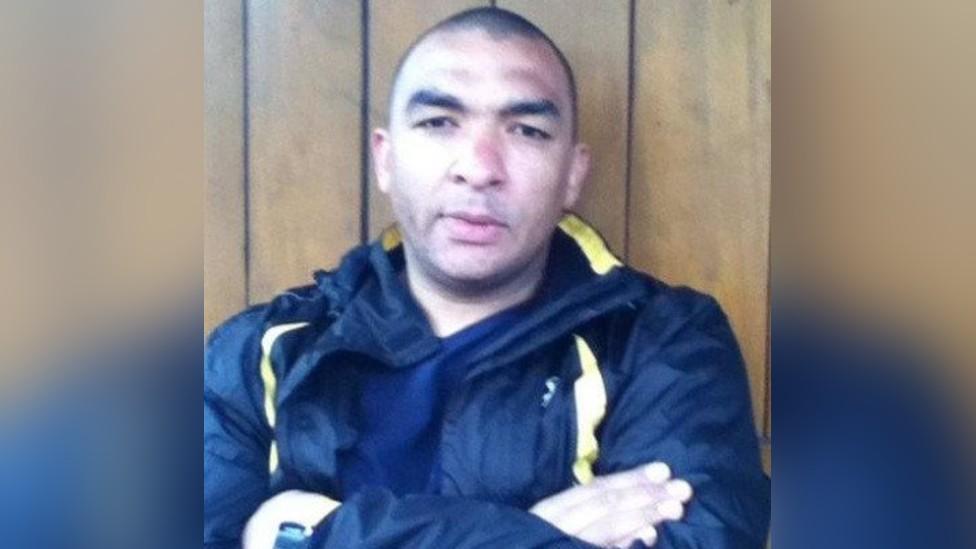Leon Briggs: Officer who restrained man saw 'no evidence of injury'
- Published
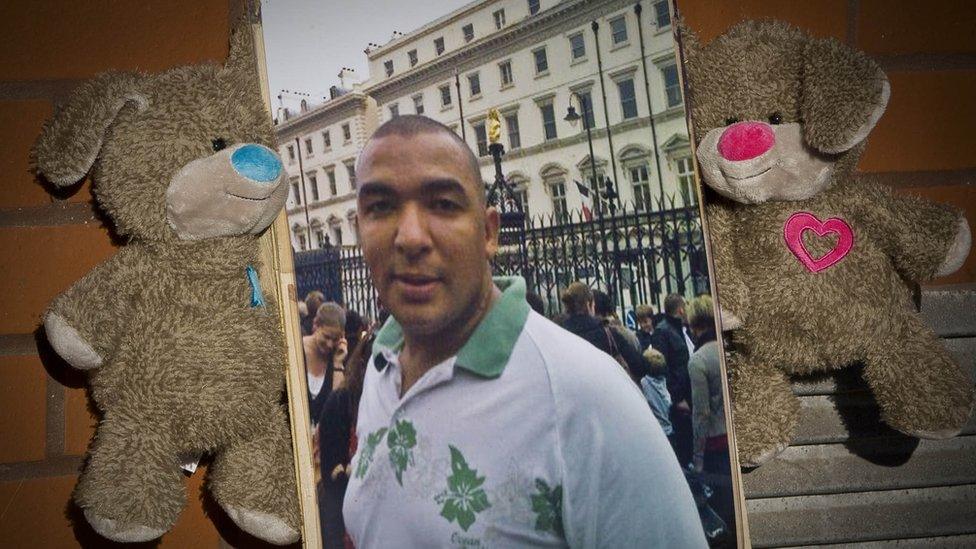
Leon Briggs died in hospital after being restrained and detained at Luton police station in November 2013
A police officer involved in restraining a man who later died has told an inquest there was "no evidence to suggest he had any injury".
Leon Briggs, 39, died in November 2013 after being detained in a Luton street under the Mental Health Act.
Acting Sgt Loren Short said he put his right knee into the rear of Mr Briggs' right shoulder "with little pressure".
He told the jury Mr Briggs' airways were not restricted during the restraint and he was "able to move".
The father-of-two was restrained in a face-down position, the inquest heard.
Acting Sgt Short said he was "aware" of the dangers of positional asphyxia but he had no "immediate concerns" about how Mr Briggs was restrained as there was "enough space between the floor and his chest".
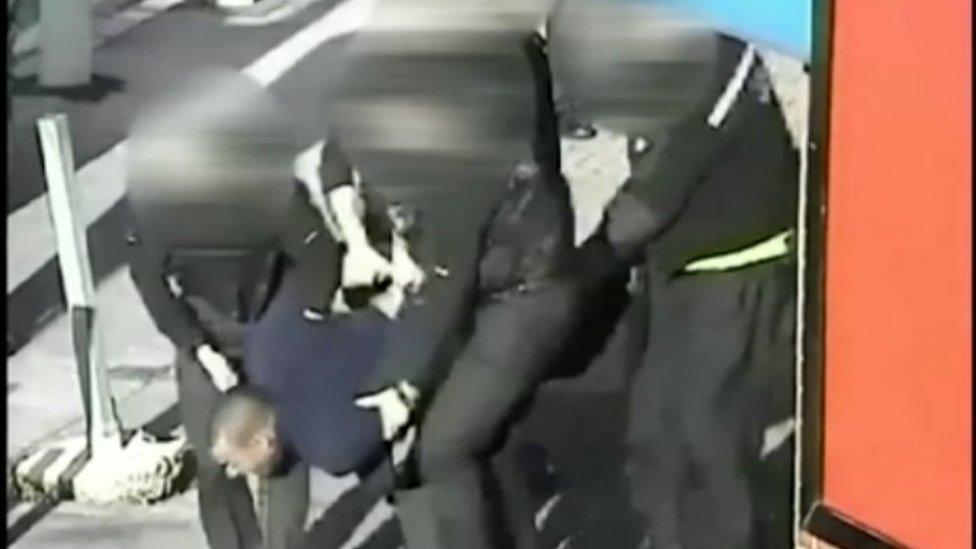
CCTV footage showed Leon Briggs being carried by officers to a police van after being restrained
The jury was previously shown CCTV of the lorry driver skipping between shops and across roads, before two Bedfordshire Police officers handcuffed him and placed him in leg restraints on Marsh Road in Luton on 4 November 2013.
Mr Briggs was detained in a cell at about 14:25 GMT under the Mental Health Act, but he became unconscious and was pronounced dead in hospital at about 16:15.
The inquest heard his primary cause of death was "amphetamine intoxication with prone restraint and prolonged struggling".
A secondary cause of death was given as coronary heart disease.
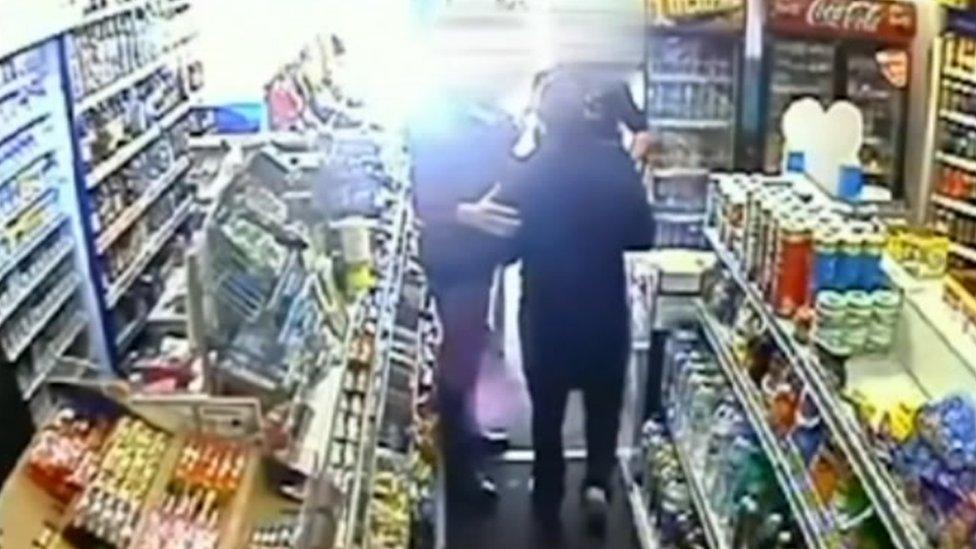
Footage showed Mr Briggs walking out of a shop with officers before he was restrained
In a statement read to the jury, Acting Sgt Short said he tried to assure Mr Briggs he was trying to help him and spoke to him in a "non-threatening" tone.
"He continued to struggle and continued to shout and there was a mixture of incoherent shouting," he said.
More from the Leon Briggs inquest:
The officer said he thought Mr Briggs was experiencing "mental health issues" after he shouted "they're trying to get me".
The inquest heard Mr Briggs continually swore at the officers and repeatedly told them to "get off".
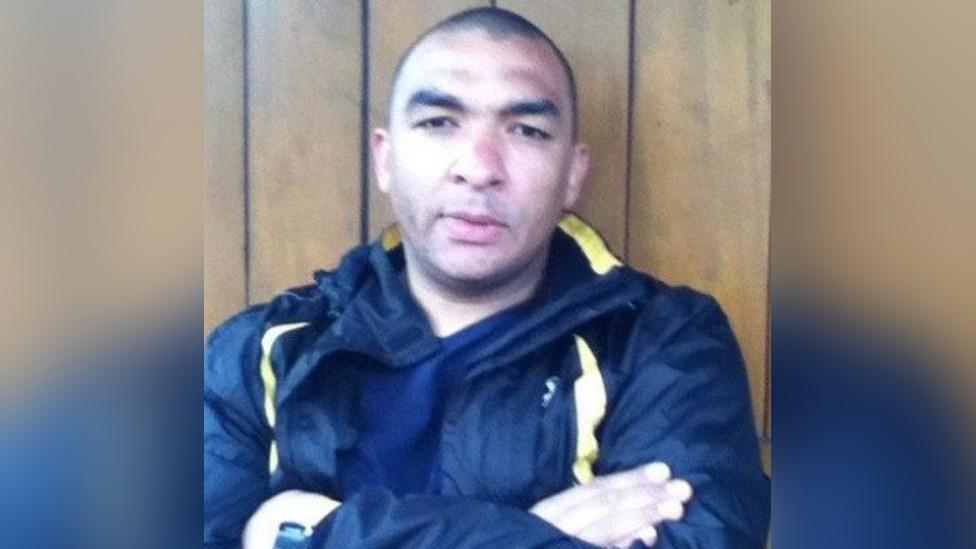
Mr Briggs was described as "a really good dad" who loved spending time with his children
Acting Sgt Short said he told ambulance staff who attended the incident that he planned to section Mr Briggs under the Mental Health Act.
"In my opinion the ambulance staff showed no interest in the incident," he said.
"This is because they asked no other questions about the incident.
"As a result of this I felt they had no concerns for his health and agreed with my assessment."
Acting Sgt Short told the jury he "would have expected" ambulance staff "to have assessed him or go and see him if they felt it necessary".
The inquest heard the ambulance staff were not told how long Mr Briggs had been restrained.
The officer told the jury: "There was no evidence to suggest he had any injury or required an assessment."
The inquest continues.

Find BBC News: East of England on Facebook, external, Instagram, external and Twitter, external. If you have a story suggestion email eastofenglandnews@bbc.co.uk, external
- Published28 January 2021

- Published27 January 2021

- Published26 January 2021
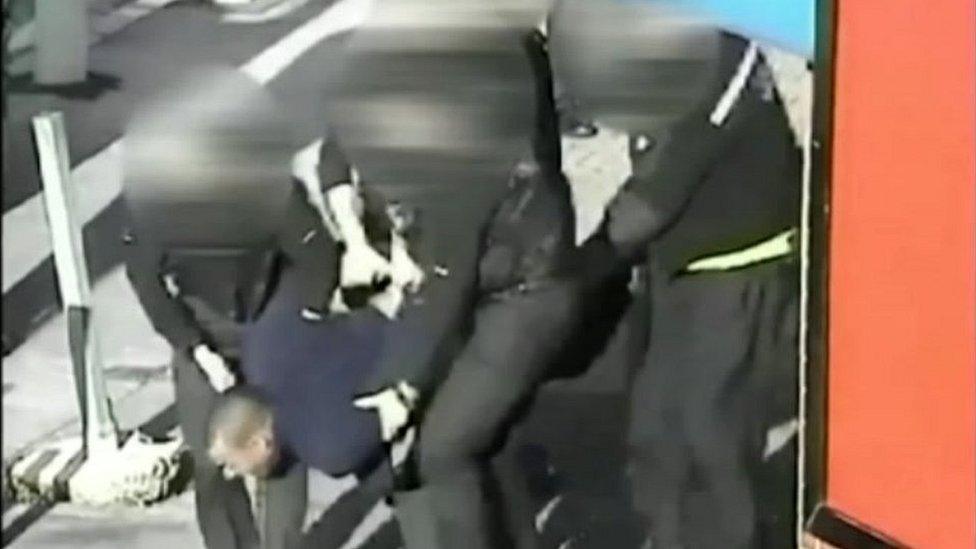
- Published25 January 2021

- Published21 January 2021

- Published19 January 2021
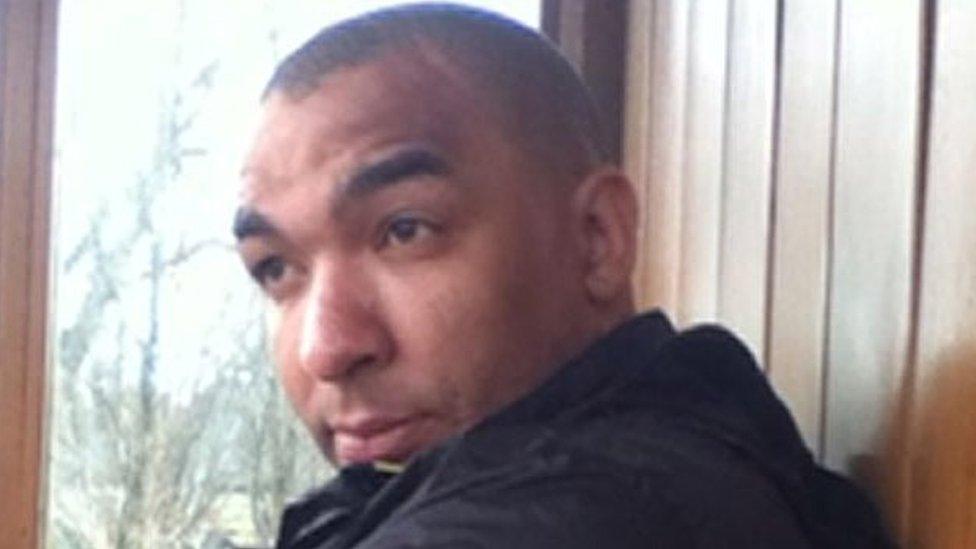
- Published18 January 2021

- Published14 January 2021

- Published13 January 2021
